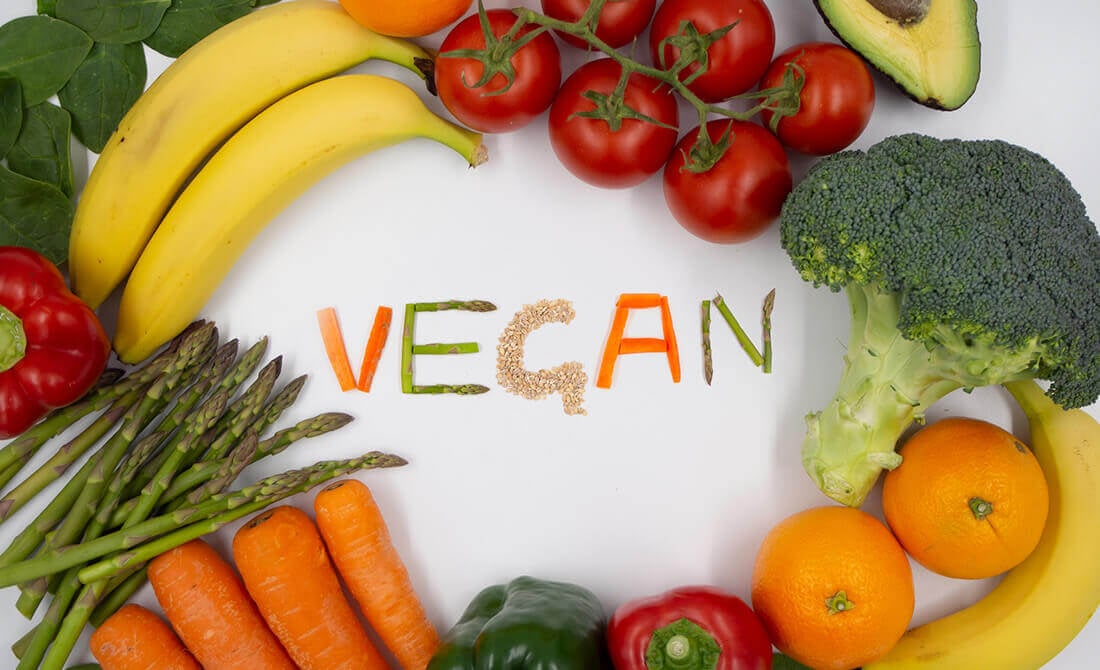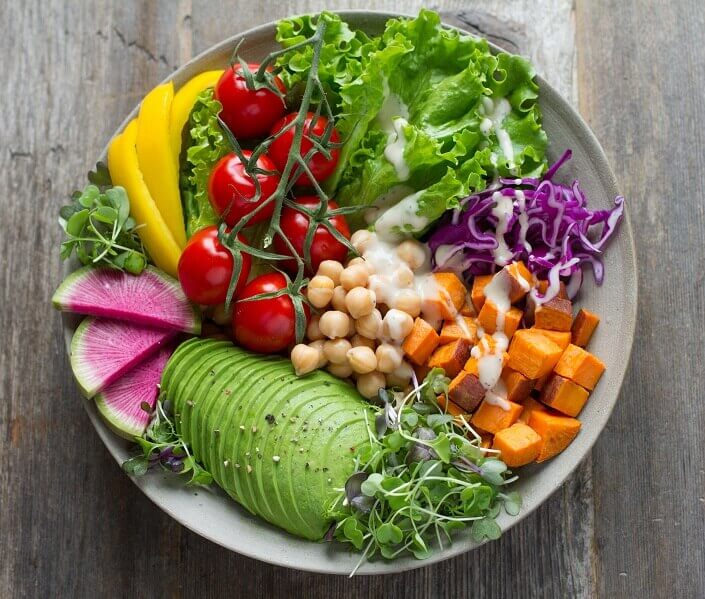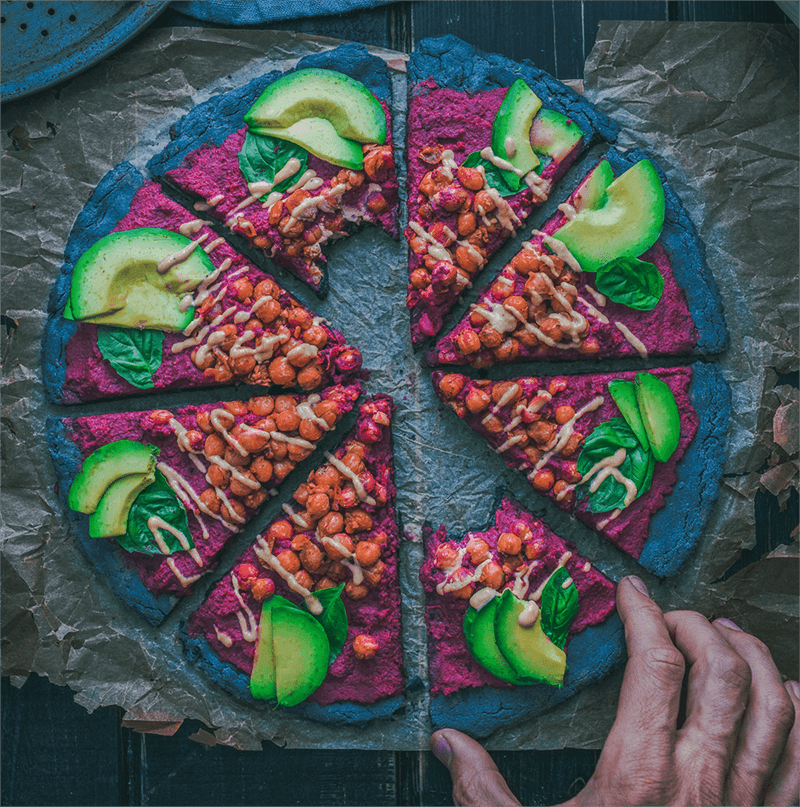5 mins read
How to Get Enough Calcium And Vitamin D On A Vegan Diet

In this article we look at what calcium is, calcium and vitamin D deficiency in vegans, how much calcium our bodies need and good sources of calcium for those on a vegan diet.
View our Nutrition Tests and start your journey to better health today
What is Calcium?
Calcium is the most abundant mineral in the human body. About 40% of the mineral mass of our bones is calcium and it is needed to keep our bones and teeth healthy and strong. Calcium is also required for a healthy immune system, effective blood clotting and helping our muscles contract and relax.
Calcium and Vitamin D Deficiency in Vegans
Some research has shown that vegans have a lower intake of calcium and vitamin D compared to non-vegans and many studies have shown vegans to have a lower bone mineral density and thus, a higher risk of fractures.
Calcium deficiency can have negative implications for bone mass, this is particularly important during periods of growth. If dietary calcium intake is inadequate at this time, it can cause poor bone health later in life. Therefore, it is important children, particularly those following a vegan diet, achieve their daily requirement. Males aged between 11 and 18 need 1000mg and females need 800mg per day.
Osteoporosis is a disease which can result form increased bone weakness and leaves us at a greater risk of broken bones. Osteoporosis can be prevented by eating a diet with adequate amounts of calcium throughout childhood.
How much calcium do we need?
In the UK, the reference nutrient intake (RNI) for adults aged over 19 years old is 700 mg/day. However, during adolescence and childhood, the intake of calcium needs to be higher so that peak bone mass is achieved and attained which will prevent conditions such as osteoporosis from developing later in life.
Sources of calcium include:
- Dairy products
- Milk
- Cheese
- Yoghurt
- Green leafy vegetables
- Broccoli
- Cabbage
- Okra
- Soya beans
- Tofu
- Nuts
- Food made with fortified flour
- Fish where you eat the bones
- Sardines
- Pilchards
- Tinned salmon
What Are Good Sources Of Calcium For A Vegan?
There are plenty of plant-based sources available to individuals following a vegan diet, including:
- Fortified soya, rice and oat drinks
- Pulses
- Sesame seeds
- Bread – calcium is added to white and brown flour by law in the UK
- Dried fruit
- Raisins
- Prunes
- Figs
- Apricots
Dried fruit counts towards our five-a-day target, if you eat a 30g portion. However, you can reduce the impact the sugar can have on your teeth by eating fruit at mealtimes. The naturally occurring sugar found in dried fruit can contribute to tooth decay, in much the same way as sweets and fizzy drinks do. When we eat sugar, acid is produced which breaks down the sugar but also dissolves the tooth surface, causing the first stages of tooth decay.
According to The Vegan Society, adding calcium-set tofu and calcium-fortified foods to most vegan meals can help you to reach your daily requirements.
“Good nutrition plays an important role in bone health and a well-planned vegan diet can provide all the nutrients you need. It’s easy to hit your calcium target without dairy if you choose good alternatives. Calcium-fortified plant milk contains the same amount of calcium as cows’ milk, and calcium-fortified yoghurt alternatives, calcium-set tofu and soya and linseed bread fortified with extra calcium are also really rich sources” says Heather Russell, dietitian for The Vegan Society, “everyone in the UK needs to ensure that they’re following guidelines about vitamin D, which helps to control the amount of calcium in our bodies. Supplementation is recommended during autumn and winter as a minimum, and D3 from lichen and D2 are animal-free forms of this vitamin”.
Calcium and vitamin D
Without vitamin D, both calcium and phosphorus absorption are reduced. In fact, in the case of calcium only approximately 10-15% of calcium is absorbed by the body. The absorption of calcium takes place in the intestinal tract, particularly in the lower part known as the ileum. Calcium’s entry into the digestive tract is enhanced by the presence of vitamin D, so it is vital it is present.
We get most of our vitamin D from sunlight exposure, particularly the sun’s UVB rays. When the UVB radiation reaches the skin, it penetrates the skin and is converted to previtamin D, which is quickly converted to vitamin D3. There are few good food sources of vitamin D, so we need to spend adequate time in the sun or supplement our diet. However, eating a diet which is high in oily fish prevents vitamin D deficiency as well as having other health benefits.
Vegans can also help with their own calcium absorbability by choosing sources which are easily absorbed by the body.
Plant foods which have good absorbability include:
- Broccoli
- Kale
- Brussels sprouts
- Watercress
- Pak choi
- Cauliflower
- Calcium-fortified plant milk
- Calcium-set tofu
Surprisingly, spinach is not a good source of calcium because it has very poor absorbability, according to The Vegan Society. In fact, it is among the least bioavailable food sources of calcium, with the body only being able to absorb around 5% of the total calcium found within it.
Summary
In summary, calcium is crucial for bone health and preventing osteoporosis in later life. Vitamin D is crucial for the absorption of calcium by the body.
Following a vegan diet doesn’t mean you have to lose out on your calcium intake, there are plenty of plant-based and fortified alternatives to dairy to ensure you keep your calcium levels up.
Article references
-
Fields, H et al. (2015). How to Monitor and Advise Vegans to Ensure Adequate Nutrient Intake. The Journal of American Osteopathic Association: 116(2), pp 96-99.
-
Garriguet, D. (2011). Bone Health: Osteoporosis, Calcium and Vitamin D. Health Reports: 22(3).
-
Holick, M, F. (2007). Vitamin D Deficiency. The New England Journal of Medicine: 357, pp 266-81.
-
Jackson, R, D et al. (2006). Calcium Plus Vitamin D Supplementation and the Risk of Fractures. N Engl J Med: 354, pp 669-683.
This information has been medically reviewed by Dr Thom Phillips
Thom works in NHS general practice and has a decade of experience working in both male and female elite sport. He has a background in exercise physiology and has published research into fatigue biomarkers.

Dr Thom Phillips
Head of Clinical Services
Related articles
Like this article? Here are some more based on similar topics.



